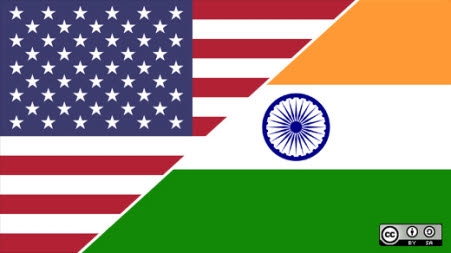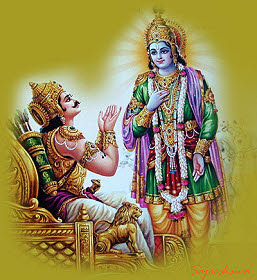by Ram Govardhan
Beniprasad Chowdhary, right from the days he was just Beni to everyone in Moradabad, was a dreamer. “How else do you think I could have landed in USA about thirty years ago as a twenty-eight-years-old?” he would ask proudly to anyone listening to the story of his life.
However, Veena, his wife, believed in a different theory. She always felt that it was his Ph.D that had helped him in getting there. “In fact, those days, anyone with a doctorate could get there,” she held.
Three years after Beniprasad landed in the U.S., 22-year-old Veena followed suit with their five-year-old son. A year later she gave birth to their second one, thus the youngest in the family was the first one to become the citizen there.
Citizenship was more important than life itself. “Life is not worthwhile without American citizenship. This is the land where the best in every nation long to come, excel and enjoy the rewards of a true blue free society,” Beniprasad would repeatedly tell over phone or when he met his childhood friends on occasional visits to India.
He was so Americanised that he hated to be called by his first name in full : Beniprasad. He preferred to be addressed as Ben for he felt it sounded better than the full name and yes the Americans loved and lapped up any amount of abbreviation. But, when it came to size, they loved everything big and bigger and he loved whatever they loved.
Thirty years of life in America had almost been a roller-coaster ride. While he did well professionally, it was his marriage that was on the rocks right from the beginning. Over the years, while he tried to westernise his wife, it was he who had lost every bit of his Indianness, including his Hindi accent, within a decade. To his utter disgust, she was steadfast in her conviction that she would get him back to India one day. She raised her children as per Hindu traditions, including morning devotions. One of her great regrets was that there was no holy river in America to have a purificatory bath. The tug of war led to years of misery, the lion’s share of which was hers, and there seemed no hope for peace between them.
After putting up with his eccentricities and sex-capades for over 20 years, and unable to spend lonely nights anymore, Veena left him and America for good.
“Smells and sounds of India beckon her,” he said on the eve of her departure. He was not wrong. America failed to impress her in 20long years: Americans spent half of their incomes on Parisian cosmetics, designer outfits and amusement. Little kids had too much of a say in domestic matters. And, most of all, one spent all of what one earned and, counter intuitively, savings was a bad word.
“If you are not impressed with the Big Apple, the chances are that you belong to the jungles,” he often said. Ben’s unemotional demeanour surprised no one, not even his children.
His sons were just out of college, had steady girlfriends and their American outlook appreciated the virtues of divorce. As soon as the papers arrived, they saw their mother off with a smile, while she grimly pushed her trolley away, without turning back. The boys didn’t turn back either, not even once, though one could see her walking away for quite a while through the glass-walls of JFK. But when she turned back, one last time, fighting tears, her children had gone.
The first thing Beniprasad did after she left was to change his first name from Beniprasad to Ben officially. And the second thing was to propose to his long-time girlfriend, Clara, a wealthy African-American. From being an estate agent just a few years ago, her meteoric rise had shocked everyone in downtown New York except Ben.
In the 10 years since his wife left, his wealth had doubled. After chucking his university job, in partnership with Clara, Ben had become one of the top real-estate barons in New York. They owned hundreds of apartments, mansions, villas, and other commercial properties. Bands such as Take That and Led Zeppelin had stayed in one of his lavish mansions. Infact, he grew so wealthy that he was almost sure of surviving a sudden Apocalypse – he had enough resources to ask Richard Branson to launch him and his dear ones to space while all others here on earth perished in the aftermath.
In the wee hours of one cold morning, while he was in the thick of one such apocalyptic dream, one of his cousins from Moradabad called him. The cousin said Veena had become too western, drank whiskey like a man, and, shared his suspicion that she was in a relationship with a man half her age. The caller said she often drove to Delhi to get western clothes and other western things for herself and her boyfriend.
The boyfriend thing angered him. He could not imagine his 50-year-old wife going around with a young man. Ben felt like asking several things about the young chap but his reputation as a philanthropist in Moradabad kept him from doing it.
Unable to believe what he had heard from his cousin, Ben called up his friend, Mr. Tripathi, who had lived three blocks away in Albany but had returned to Moradabad 10 years ago to spend his last years on his native soil.
Mr. Tripathi wrote an email after three weeks.
“Dear Ben, it is with great pain that I convey this to you. I am afraid I can convey the things I am going to tell you only in writing. She has developed all sorts of addictions like alcohol, smoking and more dangerous ones like hashish, marijuana, and cannabis. Her boyfriend, I am told, is a supplier of the dope to whole of Moradabad. Obviously, this thick-head of a chap is a jailbird. I feel you must come here and salvage your pride.”
Travelling to India for this was waste of time. Ben called Veena over phone only to be rebuffed, “If you treasure a black woman 20 years younger to you, there is nothing wrong if I am infatuated with a younger man.”
“I have a reputation as a philanthropist there,” said Ben.
“What about your lecherous reputation over there? Be grateful that I haven’t revealed anything to any of your cousins here,” said Veena. “These are my last few years…let me live the way I want. You carry on with yours unhindered,” said Veena.
Ben was flabbergasted; Veena’s thoughts seemed more western than his own.
Unable to stomach what Veena was doing in India, Ben landed in Delhi and reached Moradabad in the morning. There was a huge gathering at his bungalow. Nudging his way, he struggled to get into the house.
The house was now an office. He saw Veena sitting in a corner cabin. It looked like a badly kept government workplace.
Veena gestured him to come in.
“What’s all this shit?” asked Ben, a tinge of annoyance evident in his voice.
I am running this micro-finance company since I arrived in India. We now serve about eight thousand women from sixty plus villages surrounding Moradabad,” said Veena.
“How did you get into this?” asked Ben.
“When I came back ten years ago, several women used to borrow few rupees from me. I needed very little to get by here…so all the money you sent used to languish in bank account. I used to help whoever asked and soon the word spread. Few of them then began borrowing in thousands but one woman who had some NGO experience suggested that I run a micro-finance company. I grabbed the idea, appointed her as the manager and here we are…eight thousand beneficiaries and counting…”
Ben was quiet.
“However western you think you are, you are an absolute Indian at heart,” said Veena.
“No way,” said Ben.
“Only an Indian would not want his wife to go to the dogs even after divorcing her,” said Veena. “All that you had heard about me was enacted by your cousins and your friends at my request. It was the only ploy to get you here.”
Ben’s initial shock slowly transformed to reflection. As much as he grew quiet, he grew curious too. With each passing day, witnessing the people who visited Veena’s office and listening to their stories of struggle and triumph, Ben sensed that something within him had begun to change though he couldn’t put a finger on what that was. He felt hollow and empty and in some strange way, irresponsible. It is with this nagging feeling that he returned to the U.S., couple of weeks later, in a contemplative frame of mind.
Upon reaching New York, he began seeing his future aspirations and plans in a new light. A few months later, when he was sure that the transformation he felt was indeed genuine and not volatile or circumstances-driven, he called up Veena. Much to her pleasant surprise, he promised her that he would extend his support to her initiative from the U.S. while also garnering funds from his American friends.
The real surprise, though, came almost a year later. It was a warm Sunday morning and Ben announced to a rather-shocked Clara and his sons that he was intending to go down to India for three months.
“I wish to visit the villages and learn more about people’s lives. I have now begun to think that there’s more to life than what I have lived and accomplished all these years in the U.S.” he declared.
While his sons smirked and Clara shrugged disinterestedly, Beniprasad had made up his mind. It was time for a change.






